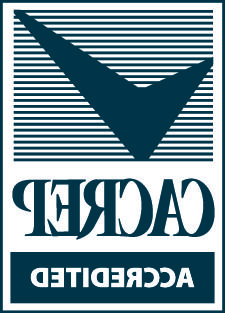Announcements
|
Fall 2025 Cohort |
The CMHC & SC programs are currently accepting applications for our fall 2025 Cohort. Due to increased enrollment, we are at capacity for spring and summer 2025. |
|
CACREP |
Great News! The Clinical Mental Health Counseling MAE program is now CACREP Accredited! |
|
CAEP |
The School Counseling program-Options 1 & 2 are CAEP accredited! |
|
Praxis Core Exam |
The School Counseling Option 2 Students are NO LONGER required to complete the Praxis Core Exam! Hooray! |
| Praxis Subject Exam | All School Counseling Students (Options 1 & 2) are required to pass Praxis Counseling Subject Exam #5422 to graduate. Please do not register for #5421, as it is no longer accepted for endorsement. ETS requires a 28-day waiting period before repeating the exam should you fail an attempt. Thus, you must schedule to take this exam during Practicum at least one semester before graduation. |
| CPCE Exit Exam | All CMHC students are required to pass the CPCE before graduating. As of Aug 2023, candidates taking the CPCE will be allowed two attempts within the 6-month administration window. If you fail the first attempt, you can reregister 30 days after the first attempt. So, to be safe and ensure we have a passing score by graduation, you must schedule to take this exam during Practicum. |
| SAKAI LMS Content | If you previously enrolled in classes utilizing SAKAI (our LMS before Canvas), please retrieve any documents (i.e., KPI assignments or syllabi) you wish to retain. The SAKAI contract will end by June 2024, ending any access to former courses. Please reach out to your advisor with any questions. |
| Mental Health Licensure and School Counseling Endorsement |
The CMHC & SC programs are designed to prepare students for licensure or endorsement in Nebraska. If you plan to pursue licensure or endorsement in a state other than Nebraska, please check the state's licensing board to determine licensing requirements. You may be required to complete additional coursework for licensure/endorsement or authorization before beginning a clinical or field experience. Please reach out to your advisor with any questions. NC-SARA |
Counselor Education at Chadron State College offers an Online Master of Arts in Education (MAE) in Clinical Mental Health Counseling and in School Counseling. The CACREP-accredited MAE in Clinical Mental Health Counseling provides the academic coursework required for eligibility for licensure as a Licensed Mental Health Practitioner (LMHP) in Nebraska. Likewise, the CAEP-accredited MAE in School Counseling provides the academic coursework required for eligibility for endorsement as a School Counselor in Nebraska. Additionally, we offer Nebraska Department of Health and Human Services (DHHS) approved graduate and undergraduate coursework leading to licensure as a Licensed Alcohol and Drug Counselor (LADC) in Nebraska. The programs and academic courses will prepare you to work professionally in various public and private counseling agencies or within elementary and secondary school settings.
We hope our completely online accredited programs will meet your academic and professional goals as you embark on your chosen career as a professional counselor. Our website and counseling Counselor Education Student Handbook will provide information regarding program curricula, faculty, performance outcomes, program and college policies, professional associations, and student services.
- Choose question
New Student Orientation
Once you've received acceptance, you will view a New Student Orientation video prior to, or during, your first semester of classes. View the orientation video here. Should you require more detailed information, contact Dr. Kathleen Woods, Counseling Program Director.
Council for the Accreditation of Educator Preparation (CAEP)
The CSC Graduate School Counseling degree program (MAE degree) is accredited by the the Council for the Accreditation of Educator Preparation (CAEP) and formally approved by the State of Nebraska. The Council for the Accreditation of Educator Preparation (CAEP) advances excellence in educator preparation through evidence-based accreditation that assures quality and supports continuous improvement to strengthen PK-12 student learning. CAEP is recognized by the Council for Higher Education Accreditation (CHEA).
Higher Learning Commission Accreditation
The CSC Graduate Counselor Education Program MAE degrees are accredited by the Higher Learning Commission (HLC) of the North Central Association of Colleges and Schools (NCA) to confer the residential Master of Arts in Education degree.
Council for Accreditation of Counseling and Related Educational Programs (CACREP)
The CSC Graduate Counselor Education MAE degree in Clinical Mental Health Counseling is CACREP accredited. CACREP accredits master’s and doctoral degree programs in counseling and its specialties that are offered by colleges and universities in the United States and throughout the world.

- Choose question

